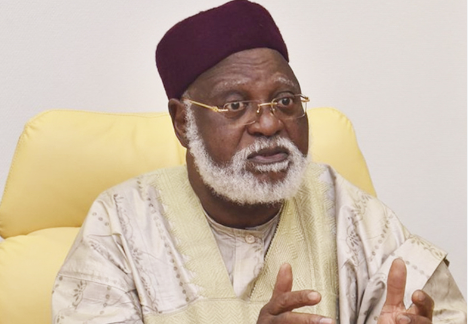The African Union has suspended the Republic of Niger from all its activities following last month’s military coup in the country.
In a communiqué issued on Tuesday, the union noted that its decision to suspend Niger followed the failure of the military junta to hand over power to the democratically elected President, Mohamed Bazoum.
“The AU decides, in line with the relevant AU instruments, in particular, the AU Constitutive Act, the Protocol Relating to the Establishment of the Peace and Security Council of the African Union, and the African Charter on Democracy, Elections, and Governance, to immediately suspend the participation of the Republic of Niger in all activities of the AU and its organs and institutions until the effective restoration of constitutional order in the country.
“The AU, in this regard, calls upon all member states of the AU and the international community, including bilateral and multilateral partners at large, to reject this unconstitutional change of government and to refrain from any action likely to grant legitimacy to the illegal regime in Niger,” the communiqué read.
The turnout is a sequel to back-and-forth negotiations and threats from concerned stakeholders to see to the restoration of democracy in the Sahel state.
Meanwhile, a former Nigerian Military Head of State and envoy of the Economic Community of West African States for peaceful resolution in Niger, General Abdulsalam Abubakar, expressed hope on Tuesday that the meeting in Niger with the coup leaders was very fruitful and could lead to a positive result.
“Nobody wants to go to war,” he told reporters in Abuja after briefing Nigerian President Bola Tinubu on the mission.
Speaking with State House correspondents after the meeting with President Bola Tinubu, Abubakar noted that the visit to Niger was a fruitful one and channels for diplomacy have been opened.
While giving further details of his discussions with the President, the elder statesman said,
“As you are aware, the ECOWAS Heads of State and Government have made me an envoy to the Niger Republic, and we were there over the weekend to see the military people and discuss finding a way out of the lacuna we find ourselves in. So that’s why I’m here this afternoon, together with the President of the ECOWAS Commission, to give a report back to Mr President on our discussions in Niger.
“I must say that our visit to Niger has been very fruitful and that it has opened an avenue to start talking, and hopefully we’ll get somewhere.”
Reacting to the Niger junta’s announcement that power will be handed over to a democratically elected government in three years, Abubakar said,
“Well, like I said, we’ve started talking. They made their own points, and then I made my report to the Chairman of the ECOWAS Heads of State and President. He will now consult with his colleagues, and then the ding-dong starts, and we’ll hopefully get somewhere.
“Hopefully diplomacy will see the better of this. Nobody wants to go to war; it doesn’t pay anybody, but then again, our leaders have said if all fails, and I don’t think all will fail, we’ll get somewhere; we’ll get out of this mess.”
In its communiqué, the AU Peace and Security Council said on Tuesday that it had noted ECOWAS’s decision to activate a standby force and asked the AU Commission to assess the economic, social, and security implications of deploying such a force.
It also said it had asked the AU Commission to compile a list of members of the junta and their supporters for targeted sanctions and “the application of individual punitive measures.”


